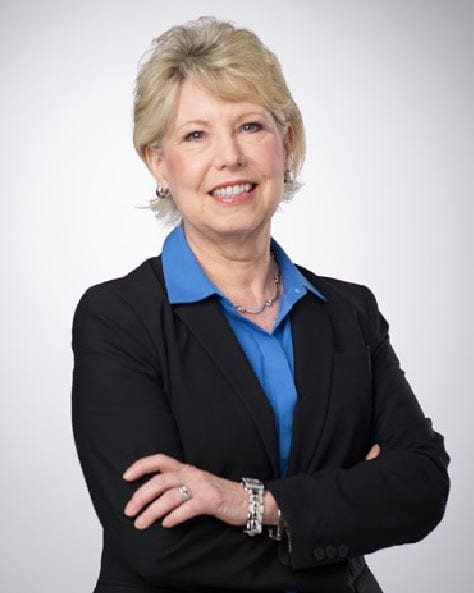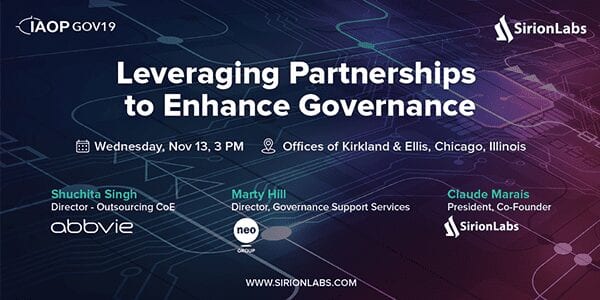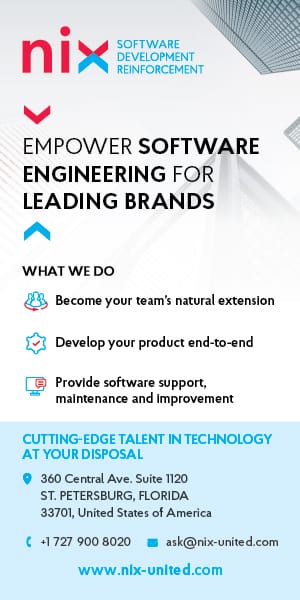
IAOP members officially launched this newest chapter in August and it’s already making a big impact on the industry and our membership. Aimed at promoting social responsibility awareness in our industry, the group is working to develop a standard set of best practices supporting the concept of “doing well by doing good.”
Impact sourcing will take center stage at OWS 2.0 in Orlando. SRO Chapter Lead Chair Jon Browning, CEO, Global Mentorship Initiative will lead a panel discussion on Doing Well By Doing Good: The Future of Impact Sourcing, where Harambee Youth Employment Accelerator, VISA, Intuit and other organizations will share their experiences on the benefits of this growing business practice.
 We talked with one of the SRO Chapter co-chairs, Mary Lewis, COP, Manager, Sourcing, Sprint about the latest happenings you don’t want to miss from this highly engaged chapter.
We talked with one of the SRO Chapter co-chairs, Mary Lewis, COP, Manager, Sourcing, Sprint about the latest happenings you don’t want to miss from this highly engaged chapter.
Why should IAOP members get involved with the SRO Chapter?
Regardless of the number of resources a company may or may not have, there is much to be gained by being involved in IAOP, and more importantly an IAOP chapter. The SRO chapter offers a collegial, collaborative approach to social responsibility in outsourcing. The phrase “Think globally, act locally” rings true with SRO. Whether chapter members are industry leaders in their SRO efforts or are starting on their SRO journey and need to come up with a strategy, the chapter offers a great opportunity to share ideas, support, and expertise.
What is one key takeaway from the inaugural SRO Chapter webinar on Aug. 20 on the Evolution of Socially Responsible Outsourcing that you would like to share?
My “aha” from the webinar is that there isn’t a ‘one-size-fits-all’ approach to SRO. Each of the companies shared dramatically different ways they pursue social responsibility in outsourcing. Each company’s efforts aligned with its purpose and business model. And yet, they all were successful. We can learn from each other and figure out what makes sense to meet our organization’s needs.
Are there any misconceptions about SRO that you would like to correct?
I’d like to debunk the idea that a company will have to compromise its quality standards by pursuing providers via an SRO strategy and that SRO will cost more than the benefits it provides. SRO efforts such as supplier diversity, which typically involve sourcing goods and services from small or diverse or women-owned businesses, expose buyers to new ways of thinking and suppliers who have the ability to quickly pivot in the marketplace. A company can do well by doing good.
Why are you excited about social responsibility in outsourcing being featured as a keynote presentation at OWS 2.0?
Everyone has an opportunity to make a positive impact throughout the supply chain. I think audience members will see that there are many ways a firm can interpret and make a difference for multiple stakeholders whether directly in the community, or through their supply base. When companies share what they are doing and how they’ve made a positive impact in underserved communities and segments of society, we all learn and benefit.
What do you hope audience members will take away from this presentation?
A wise person said, “A rising tide floats all boats.” That same concept can be applied to SRO. When an organization pursues a goal to make a difference, the positive effects are exponential. Whether it’s developing minority or women-owned firms through a supplier diversity program or selecting providers with a pipeline of talent from developing countries, or expanding opportunities to underserved youth via job skills, internships, and mentoring programs, the entire services supply chain ecosystem benefits. Sharing stories of what worked and what didn’t will hopefully inspire audience members to take action.
How long have you been involved with IAOP? What is the greatest benefit you receive from being a member?
I’ve been a member of IAOP for over six years, having joined through Sprint’s corporate membership to represent the company on the CSR Committee. I’ve continued my involvement on the CSR committee and am co-chair in the Voice of the Customer (VOTC) and SRO Chapters, and am active in the Women Empowerment, Leadership and Development Chapter. For as much as I’ve given to IAOP, I’ve gotten so much more in return: strong relationships with thought leaders from around the world, new skills, and early exposure to trending concepts. I now look at things from a global perspective because of IAOP’s multi-stakeholder ecosystem of member segments (provider, advisor, customer, as well as NGO organizations such as the Rockefeller Foundation). Of all the professional and industry organizations I’ve been involved with throughout my career, I’ve gotten the most value out of my IAOP membership. Simply put, the ROI can’t be beaten.
Is there anything else you would like to share about the SRO Chapter?
Come join us! The exchange of ideas from chapter members from around the world and across market segments is truly exciting. I am always inspired by the talent, experience, and passion the IAOP SRO Chapter members have and the difference that even a small effort can make.
SRO Chapter Key Contacts
Lead Chair
- Jon Browning, CEO, Global Mentorship Initiative
Co-Chairs
- Debi Hamill, CEO, IAOP
- Sara Enright, Director, Global Impact Sourcing Coalition
- Mauricio Odovaine, Head of Outsourcing, Facebook
- Kimberly Smith, Group Procurement Sourcing Manager, Microsoft
- Mary Lewis, Manager, Sourcing, Supply Chain Management, Sprint Corporation
- Joyce Lee, Chief Culture Officer, Alorica
- Diane Altmix, Products Midwest Technology Delivery Lead, Accenture






